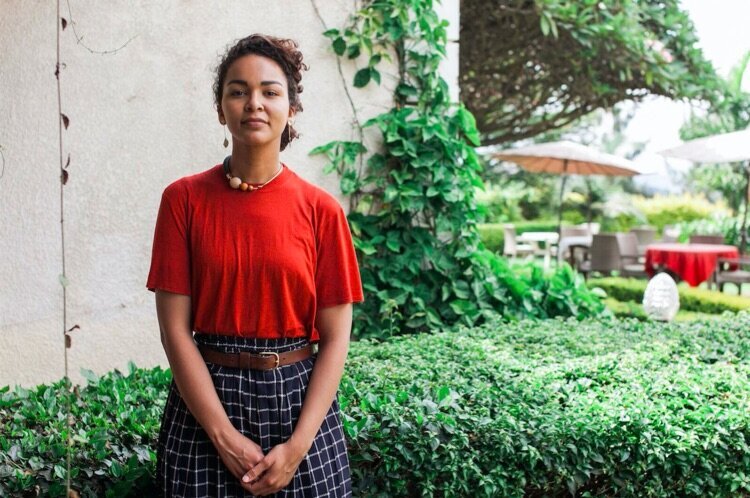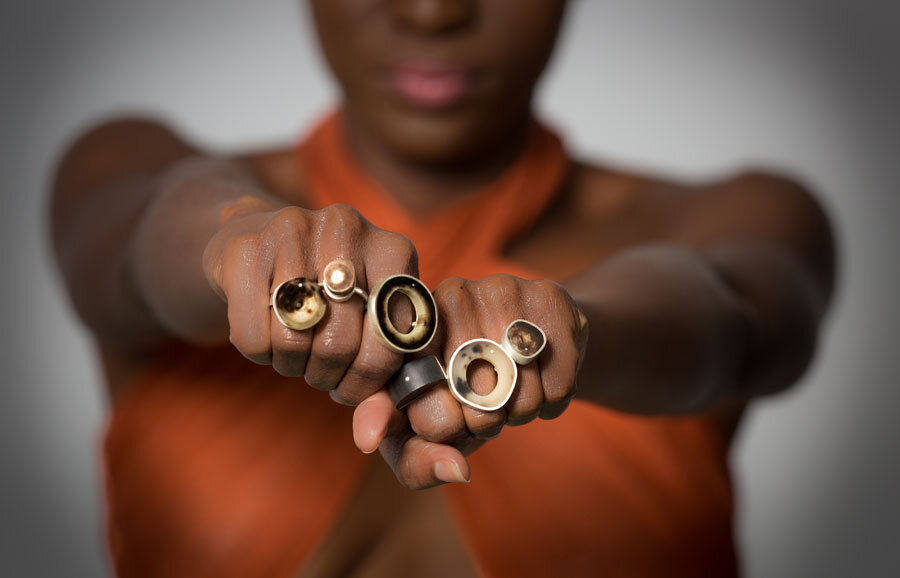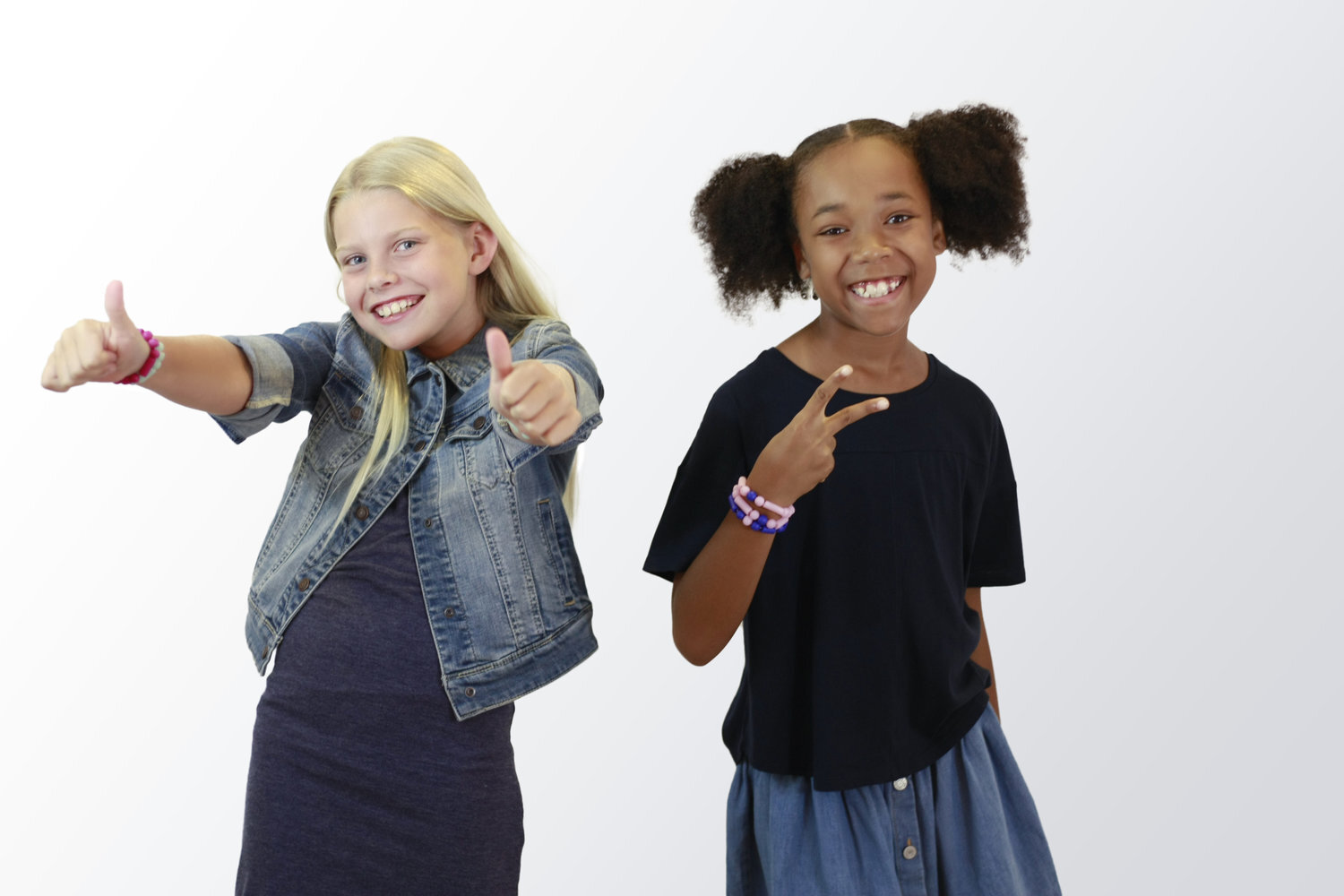
Beyond Politics, DC Is A New Hub For Social Impact
An Emerging Community Of Makers in Washington DC
It’s difficult to get away from the political energy that permeates Washington, DC, especially in anticipation of the upcoming presidential election. Even in the absence of a heated presidential race, many people view DC as a city where lawyers, politicians, and lobbyists converge. However, there is another a side of DC that is emerging – a strong, vibrant community of makers who are redefining how fashion can become a platform for changing the conversation.
Three makers, in particular, are taking their passions for design and crafted goods to tell their stories of global social issues and preserving tradition.
1. Kicheko Goods | Distinctive Pieces That Invest In Education
Every year since 2010, Kicheko Goods‘ founder Sarah Bayot has been traveling to the same village in Congo as a volunteer. During her visits, Bayot found that many children lacked the resources to go to school, could not afford to eat every day, and did not have access to clean water. Despite their challenges, she witnessed the beauty and hope of the people, their vibrant and communal spirit, and their support for each other.
Bayot recognized that hope can be made tangible and that resilience is in all of us. What if fashion can be a powerful force for positive change, and address social issues in our own neighborhoods and around the globe? Leveraging her passion for the creative arts, Bayot set out to create beautiful jewelry that helps bridge access to quality education for children who are vulnerable and at risk. Meaning “smile or laughter,” Kicheko Goods was founded in 2014, where each piece of jewelry funds one month of school for one child. Since its founding, proceeds from Kicheko were used to help construct a 6-classroom brick school building for the Mango Tree School in Eastern Congo, and provide scholarships for 71 students to attend Mango Tree for two years.
Inspired by the children in Congo, Bayot decided to launch a campaign to shine a spotlight on the hope and resilience in all of us. Through her #lifewithKicheko campaign, Bayot asks the Kicheko community to share their beautiful and challenging moments, reminding you that Kicheko is cheering you on every step of the way.
So what defines the Kicheko woman? After careful reflection, Bayot responds, “She is intentional, full of vitality, and self-directed in her purpose. She has an awareness of her role as a global citizen. She keeps it real and embraces everything about herself including her flaws. And she also has a sense of humor.”
2. Denisa Piatti Jewellery | Dedication to the Craft
While growing up in Slovakia, Denisa Piatti watched her father work with his hands, transforming ordinary things like branches into works of art. Her father, who had a natural gift and passion for art, was forbidden by his parents to go to art school.
Her father saw Piatti’s growing interest in art at a young age. Reflecting on the opportunity he never had, he allowed his daughter a choice. Before she chose her path, he asked, “Is this something you truly want? If you don’t commit to something 100%, then don’t do it at all.” After Piatti assured her commitment to art, he encouraged her to sign up for art classes. At age 16, after a rigorous two-day entrance examination, she was only 1 of 7 students accepted into a prestigious art school to study the craft of jewelry making.
Piatti’s journey and dedication to the craft is a celebration of her father. She founded Denisa Piatti Jewellery with a mission to illuminate the beauty of non-precious material by using precious, traditional processes. Although she uses some precious metals and stones, such as pearls, she uses them as a vessel to accompany unconventional materials such as acrylic plastics. Contrasting precious with non-precious materials allows the viewer to question what precious really means.
All of her pieces are made in America in small batches, with 100% dedication to craft and quality, using traditional skills and processes executed to the highest level. Her pieces are organic pieces of art – they are influenced by nature and her childhood spent outdoors foraging for wild mushrooms. How does she want people to feel about her jewelry? Piatti responds thoughtfully, “I want people to feel like they’re wearing something handmade and original, feel different and unique. I want them to touch and interact with my pieces, ask questions about them, and be curious.”
3. Ethic Goods | Goods That Make a Difference and Stories of tHOSE Who Make Them
While on her many travels, ethicgoods founder Maegan Hawley would purchase items that came from social impact organizations with the mission of empowering women. While each piece was special and represented a powerful story, the style didn’t quite fit her day-to-day life in Washington, DC. Her unworn pieces meant that the stories weren’t being told.
Hawley decided that if she was able to design and curate a collection of goods that she loved, she can help tell the stories about the people who make them. She founded ethicgoods with a mission to design and purchase beautiful items that can be worn every day, while creating jobs among women who need them. Her partner organizations in Thailand and Ethiopia offer holistic care to survivors of modern day slavery, educate and protect those at risk of exploitation, and help women break the cycle of poverty. Hawley believes that economic stability is the key to removing vulnerability, so everything ethicgoods carries was made by the woman it helped employ.
Hawley realized it was important to empower children to be part of the next generation of conscious shoppers. In fall 2016, ethicgoods launched Ethic Kiddos, a line by kids for kids. Hawley partnered with an organization in rural Thailand that works to prevent trafficking and exploitation by helping girls stay in school, and then sets them up to succeed in college. These high school girls make the Ethic Kiddos line during weekends and on school breaks, and the money they make goes toward their college education.
Through her newest line, Hawley strives to help children everywhere think about who makes their things, foster their growing sense of compassion with an age-appropriate understanding of tough challenges, and discover what they can do to help.




